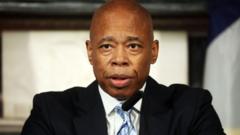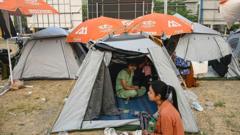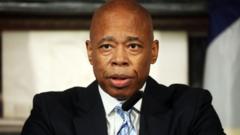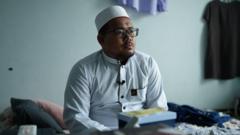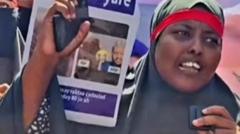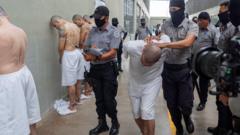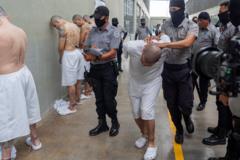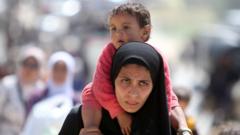In a significant legal battle, Venezuelan migrants are seeking to block deportations stemming from President Trump's use of wartime powers. The American Civil Liberties Union (ACLU) and Democracy Forward filed a brief asserting that the existing judicial block is crucial to protect immigrants from being sent to El Salvador's brutal prisons, where they risk severe human rights violations.
Venezuelan Migrants Challenge Deportation Order in Supreme Court

Venezuelan Migrants Challenge Deportation Order in Supreme Court
Lawyers argue against President Trump's wartime deportation plan, highlighting potential human rights abuses.
On April 1, 2025, representatives for Venezuelan migrants, specifically those accused of gang affiliations, called on the Supreme Court to uphold a temporary injunction against the Trump administration's deportation strategy. The administration has sought to lift this judicial barrier, arguing for the necessity of swift deportations. However, the legal defenders maintain that lifting the block would expose migrants to unregulated and potentially fatal conditions in one of the most infamous prisons globally.
The ongoing legal conflict over deportations marks one of the first major judicial tests of several executive measures employed by President Trump. The case highlights the tension between the judicial system and executive authority in matters of immigration policy. The issue has garnered attention as one of eight urgent applications submitted by the administration, reflecting the critical intersection of law and governance at play.
The court has yet to schedule formal hearings for these emergency motions, and the decision timetable remains uncertain. A reported 130 Venezuelan deportees have already been sent back to El Salvador, where they are allegedly held incommunicado. With additional details provided in the extensive 514-page court filing, including corroborating human rights expert declarations, the situation raises pressing concerns about justice and human rights protections in deportation practices—especially for those linked to significant gang activity in their home country.
The ongoing legal conflict over deportations marks one of the first major judicial tests of several executive measures employed by President Trump. The case highlights the tension between the judicial system and executive authority in matters of immigration policy. The issue has garnered attention as one of eight urgent applications submitted by the administration, reflecting the critical intersection of law and governance at play.
The court has yet to schedule formal hearings for these emergency motions, and the decision timetable remains uncertain. A reported 130 Venezuelan deportees have already been sent back to El Salvador, where they are allegedly held incommunicado. With additional details provided in the extensive 514-page court filing, including corroborating human rights expert declarations, the situation raises pressing concerns about justice and human rights protections in deportation practices—especially for those linked to significant gang activity in their home country.

